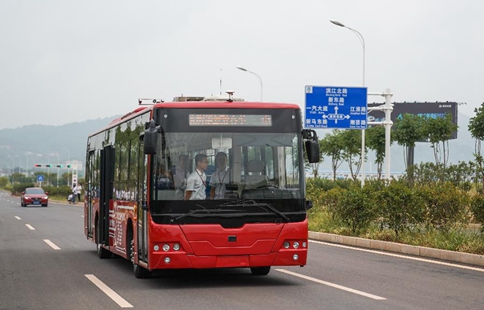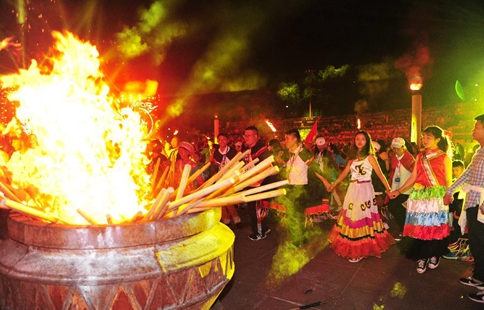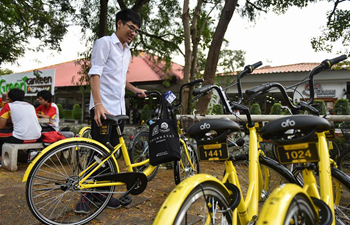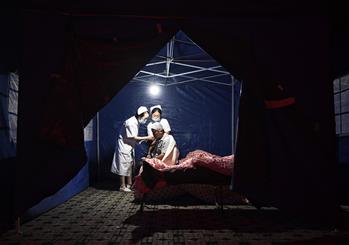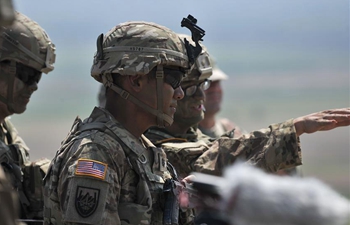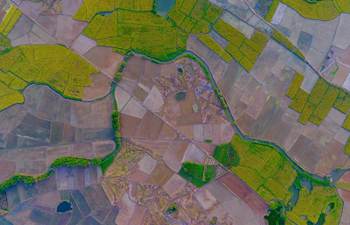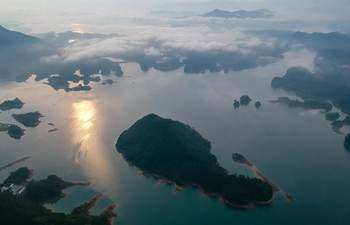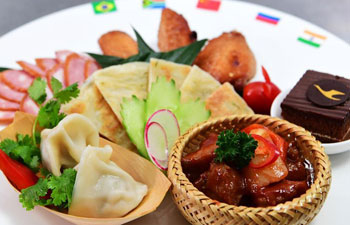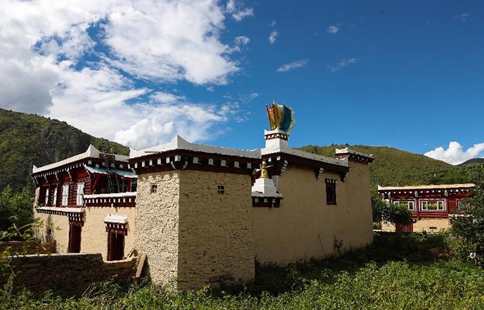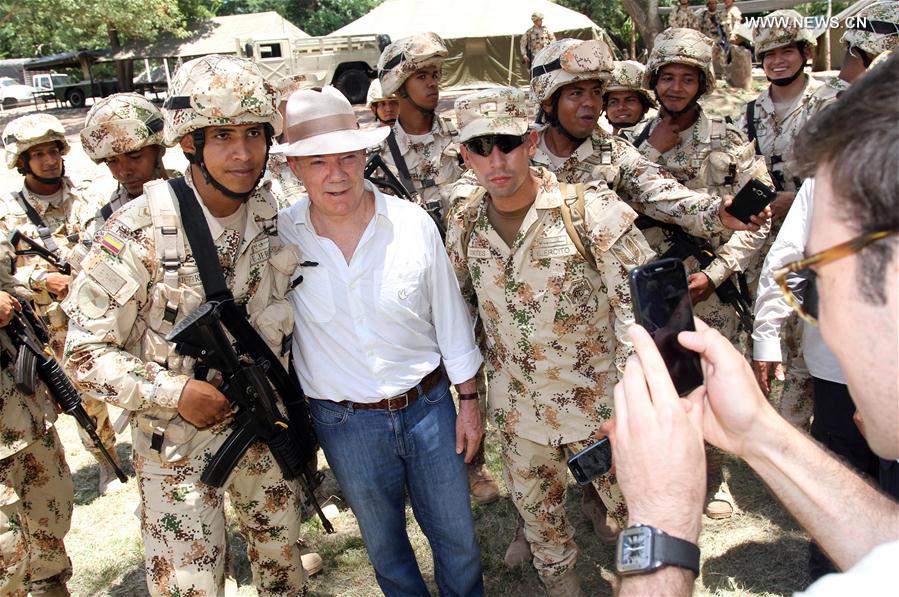
Image provided by the Presidency of Colombia shows Colombian President Juan Manuel Santos (2nd L) posing with soldiers during the ceremony marking the handover of the last container of weapons of the Revolutionary Armed Forces of Colombia (FARC) at the Pondores Transitional Point in the department of La Guajira, Colombia, on Aug. 15, 2017. Colombian President Juan Manuel Santos witnessed on Tuesday the departure of the last container of FARC weapons in the north of the country. (Xinhua/Nelson Cardenas/Presidency of Colombia)
BOGOTA, Aug. 15 (Xinhua) -- Colombian President Juan Manuel Santos on Tuesday oversaw the final withdrawal of weapons handed over by the Revolutionary Armed Forces of Colombia (FARC) rebels.
At a ceremony in the rural outskirts of Fonseca, a town in the northern province of Guajira, Santos said the shipment marked "the last breath of the conflict" between the rebels and government forces, which had lasted 53 years.
"With this disarmament, with (the withdrawal) of the last containers, the conflict truly ends and a new phase begins in the life of our nation," Santos said.
The president was accompanied by the head of the United Nations mission in Colombia, Jean Arnault, as well as FARC representatives.
"Eight months after signing a (peace) agreement, we are witnessing the conclusion of the disarmament," Santos said, adding that the process was carried out in a "record time."
Arnault confirmed that the FARC had been completely disarmed. The UN mission has withdrawn 8,112 pieces of weapons and nearly 1.3 million cartridges of ammunition from the rebels and then incinerated them.
The operation also involved extracting thousands of other weapons and munitions from FARC camps and hideouts, including more than 22 tons of explosives, 1,846 antipersonnel mines and 3,957 hand grenades.
Arnault echoed Santos' words, saying the "exhaustive process" of disarming the rebels marked a new era.
"We are going to be able to develop zones that were never developed," Santos said, referring to former rebel-held territories.
The end of the conflict also means "the economy is going to begin to grow again," he added.
As part of the peace agreement signed by Santos and FARC leader Rodrigo Londono, known as Timochenko, in November 2016, the government has pledged to invest in the country's agricultural sector and carry out land reforms.
The rebels vowed to renounce armed conflicts and pursue political change at polls.
To allay the fears of Colombia's more conservative sectors, who favored continuing to fight the FARC militarily, Santos said: "The government is absolutely committed to spreading security to the (former rebel-held) zones."




